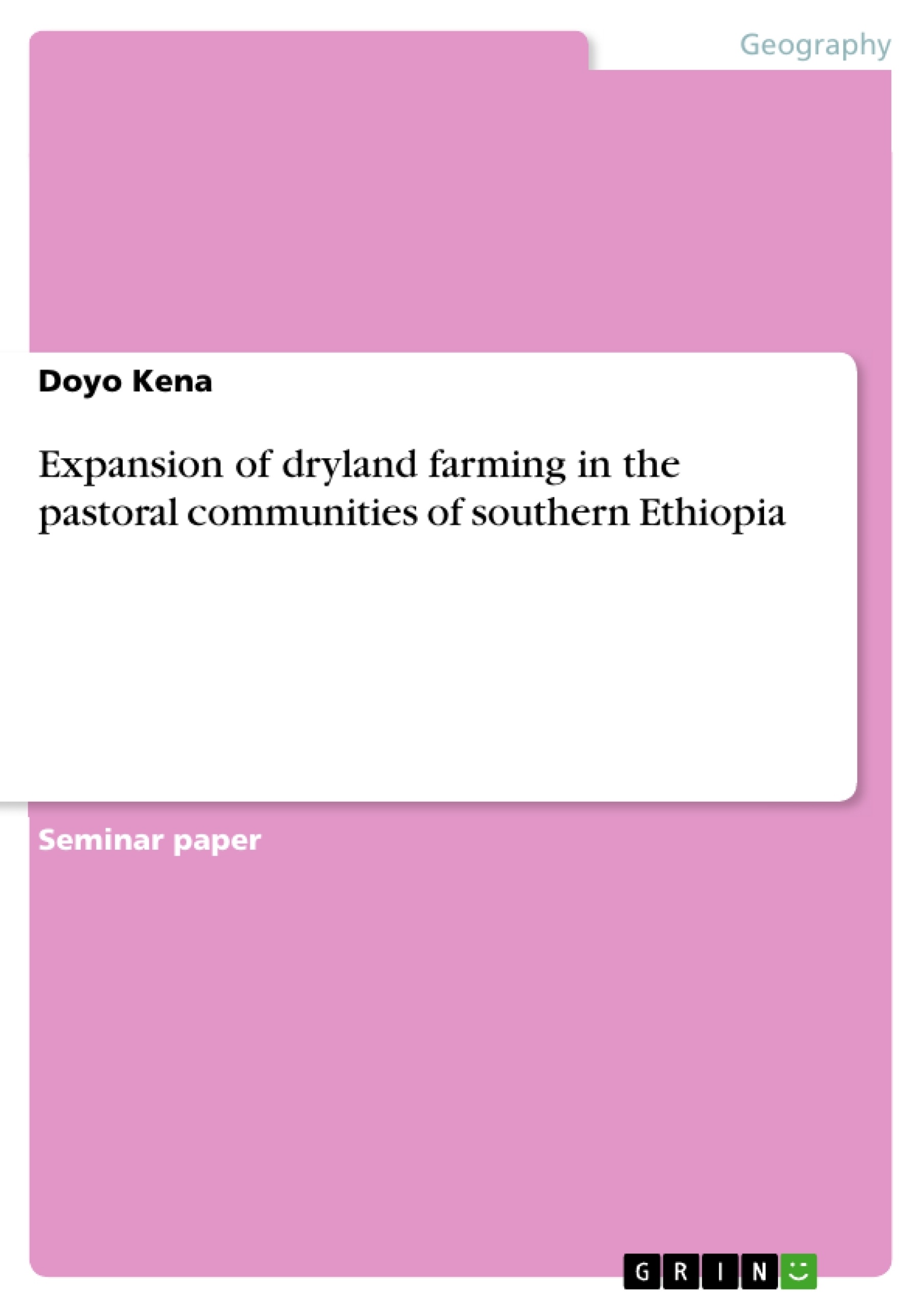Decreasing productivity of the pastoral system arising from low pastoral development emphasis by both regional and central government and various environmental challenges are forcing pastoralists to practice unscrupulous land cultivation. This review paper aimed at presenting overview of the expansion of dryland farming, explores its drivers and prospect of pastoral livelihood among Ethiopian pastoralists. Analytical reviews that critically compare the finding of different research were used, and keywords were used as searching method.
This review indicates that farming is expanding and becoming popular in pastoralist of southern Ethiopia. Pastoralism is in the dynamic condition than ever before due to multiple factor. Climate challenges, land degradation, land tenure insecurity, government policy on pastoralists settlements, conflicts, and socio-economic factors are the major drivers of dryland farming. Thus, traditionally mobile livestock keeping among pastoralists of southern Ethiopia is becoming tougher than ever before.
Opportunistic farming in the area is serving as means of subsistence for poor pastoral drop out. Conversion of pastoral lands for cultivation is not appropriate strategy for environmental health as well sustainability of the pastoral system. Practicing only extensive pastoralism in the area is also rarely possible. Therefore, dryland farming should support livestock rearing in a way that assures environmental health and economic sustainability for pastoral communities.
Table of Contents
ABSTRACT
INTRODUCTION
METHODOLOGY
EXPANSION OF DRY LAND FARMING IN THE PASTORAL AREA OF SOUTHERN ETHIOPIA
DRIVERS OF DRY LAND FARMING IN PASTORAL AREA OF SOUTHERN ETHIOPIA
FUTURE PROSPECT OF THE PASTORALISM IN SOUTHERN ETHIOPIA
CONCLUSIONS
REFERNCES
- Quote paper
- Doyo Kena (Author), 2021, Expansion of dryland farming in the pastoral communities of southern Ethiopia, Munich, GRIN Verlag, https://www.hausarbeiten.de/document/1164049



